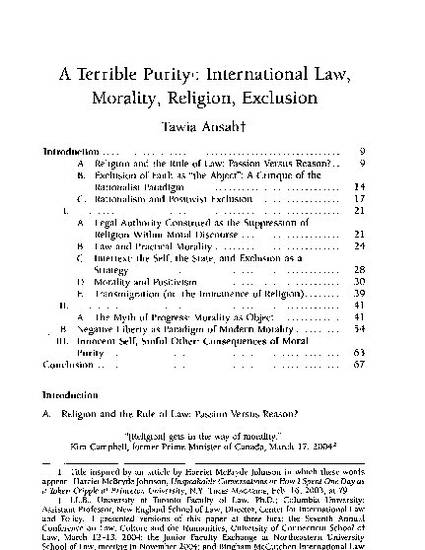
- Morality,
- International Law,
- article,
- War,
- Church State Relationship,
- Secularization,
- Violence,
- Religious Beliefs,
- Evaluation,
- Separation of powers,
- Religious aspects,
- Rule of law,
- Religion and law
Explores the separations, constructions, & barriers between law & religion from both a secular & religious perspective. Maintaining boundaries between law & religion often results in the construction of the repudiated religious Other. Creation of a public/private divide is based on an exclusion that functions like what psychoanalysts call abjection. However, the abject (religion) is a latent source of creativity that remains outside the domain of the law but weakens it as the primary site of authority. Removing religion from the sidelines of public juridical dialogue reduces the constraining power of discourse & widens the states discretion. The failure of law is seen as the cause & effect of the seduction of violence as redemption as shown in debates over the war against Iraq which point out the tension between morality & law. That which is foreign to the public space enables a distorted & exploitable return of the repressed abject that is also accessible to the self as a reservoir of creativity & power. It is concluded that critical engagement must begin at the border of exclusion where the hybrid Other is celebrated. J. Lindroth
Available at: http://works.bepress.com/tawia-ansah/1/
